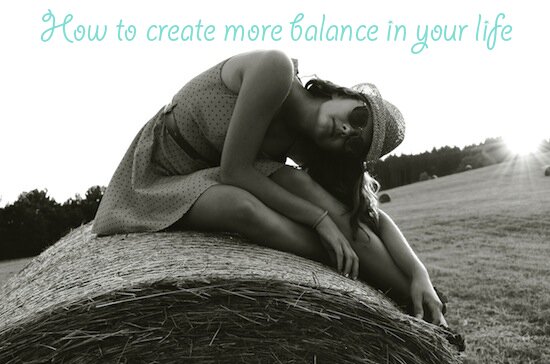I’m An Empath: Get Me Out Of Here
- At March 13, 2014
- By Helena Johnson
- In Inspiration, Women's health
-
 0
0
Having a bad day is tough, whether you’re sensitive or not. But when you’re having a bad day because you know at some subconscious level that someone else is having a bad day, then you might be an empath. Empaths are amazingly gifted people, with a highly developed sensitivity that allows them to tune into other people’s feelings and moods to an astonishing degree.
It’s not a conscious thing, it’s a heightened sense of intuition that is rarely intellectualised, and is based on the instinctive picking up on and reading of body language, tone of voice, etc. Your empath friend is a great listener and a supreme nurturer, the one that knows you are feeling down perhaps even before you do. They pick up vibes automatically and instinctively, and are superconductors for positive and negative energy. If they are in a peaceful and happy environment they will blossom and flourish like hothouse orchids, but put that same person in a hostile or toxic environment and they will wilt like a rose on a radiator.
In crowded or stressful places, with a lot of noise, an empath can find themselves feeling confused and anxious due to the sheer barrage of angry and negative “white noise” – a storm of jumbled and distressing non verbal emotional information which they will unconsciously try and process. In the worst case scenario, empaths can become angst-absorbing sponges, totally overwhelmed by other people’s feelings. And they won’t know why. It can get exhausting.
Many empaths can also find themselves targeted by emotional vampires, who instinctively know that they have found a perpetual giver who will demand nothing in return. Empaths are very likely to take on the blame for many things, and may respond in self-destructive ways. Absorbing too many stressful emotions can result in panic attacks, sleeplessness, anxiety, depression or body image issues. Many stay single, because relationships just get too hard, too confusing.
If you think this sounds familiar, why not try this little quiz from Dr. Michael Smith. It could just help save your peace of mind…
And if it is you? Well, knowledge is power….and being aware is half the battle. And it’s a battle that can be won. Most empath stuff is instinctive, and happens unconsciously, but if you become aware of it, you can deal with it. If you know it’s going to rain, you’d take an umbrella, right? So, like my old Brown Owl used to say, “Be prepared”.
Learn to recognise when you’re feeling stressed – stomach tight? Palms sweating? Muscles tensing? Heart racing? Listen to your body and consciously relax. Take some deep breaths, count them in and count them out.
Learn to notice what sort of situations make you feel anxious – then, if you’re in a stressful situation and picking up lots of static, stop and think: “How much of this stuff is actually mine?” If it’s not your stuff, consciously refuse to take it on. It’s a really powerful message to give yourself, and it helps to keep you centred and grounded.
It’s more than ok to be assertive, it’s actually vital. Establishing boundaries is really important. You nurture, value and respect other people, so let them nurture, value and respect you, too. You don’t have to justify yourself by giving a reason, just remember that “No, thank you” is actually a complete sentence… If you’re not sure where to get started with this, try a short course. They’re unbelievably useful and usually quite good fun..
Meditation and visualisation are great. Most empaths are powerfully imaginative and creative people, so tap into those talents…imagine you have a protective shield around you, or a bright white light, and that all that pesky static is just bouncing harmlessly off you. Or imagine you are in a beautiful tropical place standing under a waterfall, and let it all wash away… You get the picture, so choose something that works for you, and make sure you get some “Chill Out ” time to relax and work on this headspace so it’s there when you need it.
Just as an experiment, leave the Internet and TV alone for a fortnight. Overstimulation is a modern curse, and technology plays a big part in this. Don’t let it demand your attention : take back your power and re-write the script instead. Facebook will go on regardless, tweets can wait, and there will only be more nonsense about the weather and the government on TV. IT needs YOU to survive, but YOU don’t need IT. So let it go. Spend time with a book, write something, listen to music, go for a walk…
Once you become more aware of what an exceptional person you are, you can take care of yourself better and free yourself up to bring in more light, more joy, more compassion and more creativity. And taking care of people is what it’s all about.
How to create more balance in your life [part two]
- At March 12, 2014
- By Svetlina O'Regan
- In Inspiration, Women's health
-
 0
0
Welcome to part two of creating more balance (check out part one)! As I write this I wonder how you got on with last month’s activities, what you’ve noticed and learnt.
In part one, I talked about how to draw a vision and mindset to create a balanced life that resembles and fulfils you. This month is about practical strategies to bring life into balance. One of the fundamental rules of nature is its duality. There is giving and receiving, doing and being, holding on and letting go. To be in balance, it is essential to truly understand how this golden rule plays in our everyday life.
Tip 4: Take stock
Before changing anything, you need be clear about where you’re at. Be honest and precise about where your time and energy go. If you properly assess your current situation, you’ll get better results.
A word of caution… taking stock is about developing clarity not blaming ourselves. Accept your current reality with compassion and work to make positive changes.
Tip 5: Be organised to create time
With time being limited, being organised is tremendously important. By prioritising, planning and organising you will save time, energy and head space. Investing time in creating routines and systems to avoid fire fighting will reduce your stress levels and increase your sense of being in control. Saving time on the things you have to do also will give you more time for the things you want to do.
When organising yourself, your time, your house or anything else, check in with yourself first. Being organised has to be easy and must enhance your life. Ask yourself: “What will make my life easier, calmer and happier?”. Simplifying your life is key; you’ll be amazed to see how much of a difference small adjustments can make.
Tip 6: De-clutter
I would like to touch on de-cluttering. Life is filled with emails, paperwork, busy schedules and a lot of other stuff. Whether you believe in Feng-Shui or not, it makes logical sense that clutter is not good for balance. We can consider three types of clutter – material, mental & emotional and physical. Whether we’re conscious of it or not, clutter inevitably impacts on us. If you don’t believe me, think about a time when you had to look for something in your junk draw. Or think about any unfinished business, unresolved situations big or small. How does that make you feel inside?
We can’t always be on top of everything because life is demanding. However, consciously working toward having a less cluttered house or car, working to reduce negative and draining thoughts, dealing with unfinished business will make a tremendous difference to your life. You’ll feel lighter and have more energy.
Activity
Make a list of clutter areas in your life (for example in your house) and write down the things that busy your mind. Choose the one thing on your list that has a big impact on you but that is not too difficult to tackle. For example, it could be your handbag or an area of the kitchen that always gets cluttered and does your head in. If you’re keen, here’s a great book: Clutter clearing with Feng-Shui.
Tip 7: Pace yourself & celebrate
Pace yourself. Take one thing at a time and keep going. If you fall off the wagon, don’t worry about it. Just get back on and carry on, one step at a time.
Make creating balance in your life a way of living, an ongoing practice of looking after yourself. You’ll see that the small changes you make will add up to larger improvements. You’ll then realise how much more in balance your life is and how much you’ve learnt about yourself and life.
Get started, celebrate each step, forgive the mishaps and keep going. Have a great month and see you in April for part three!









